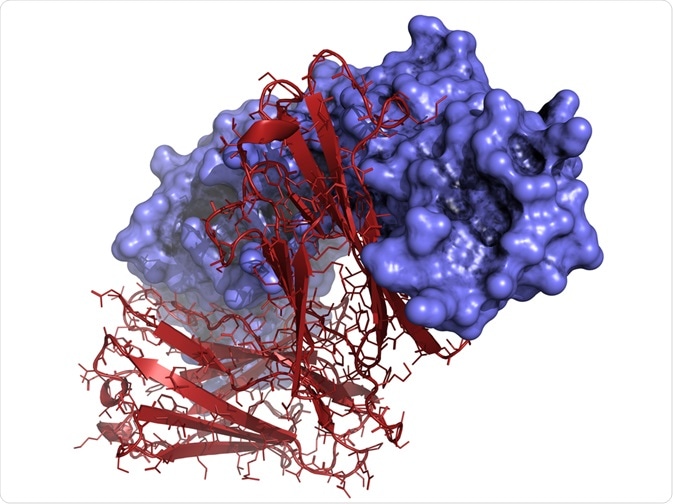Host cell proteins (HCPs) are cell-derived impurities that contaminate therapeutic proteins. Removing host cell proteins is crucial, as these proteins are immunogenic and can thus compromise the integrity of the final product.
 molekuul_be | Shutterstock
molekuul_be | Shutterstock
Why is it important to remove host cell proteins?
Immunogenicity
Human cell proteins have the potential to be immunogenic or elicit an immune response, even at minimal concentrations. For example, latent transforming growth factor, which is secreted by Chinese hamster Ovary (CHO) cells, has been shown to be functional in human cells. Also, in a recent case, the clinical trials for two recombinant proteins were stopped due to the presence of human cell protein immunogenicity.
Monoclonal antibody fragmentation
The fragmentation of monoclonal antibodies that may occur due to proteolytic activity can reduce the overall product yield.
Protein aggregation
Another problem associated with human cell proteins is aggregation, wherein the protein structure may change and form soluble or insoluble aggregates that range from small dimers to visible structures. Such aggregation is detrimental to the biopharmaceutical process, as such aggregates can also be immunogenic.
Leaching of immunogenic Protein A
Certain catalytic human cell proteins, such as metalloproteinases, can cause leaching of Protein A. These leached proteins are immunogenic; as such, they need to be monitored and cleared during the preparation of the final drug.
Quality by design concept to remove human cell proteins
An information-driven framework has been built to develop approved pharmaceuticals. In this method, the product quality is monitored at every step of processing. The first step involves identifying and characterizing the critical quality attributes of the product. Next, the design of experiments and in silico mathematical modeling is performed.
Various methods have been proposed to reduce human cell proteins in the upstream and downstream steps, and it has been suggested that the removal process should begin early during manufacturing. One method is the use of host cell engineering methods to simplify the purification of a target protein.
Genetic modification can be performed using methods, such as zinc finger, transcription-like effector nucleases (TALENs), and clustered regularly interspaced short palindromic repeats (CRISPR).
CRISPR
CRISPR and TALENs have been used recently to knockdown human cell protein lipoprotein lipase, a protein, deficiency of which causes severe liver disease in humans. To achieve this knockdown, three single-guide RNA expression vectors were designed to target the exons of the active site of lipoprotein lipase and heparin-binding site that bridge protein and lipoprotein.
Deactivation of this protein can diminish lipoprotein activity. Studies show that knocking out the gene can lead to frameshift mutations and amino acid detection that finally result in abrogating the expression of lipoprotein or producing inactive lipoprotein.
Anti-apoptotic genes
Studies also show that the expression of anti-apoptotic genes can improve cell robustness and cell viability. Interestingly, cell debris and human cell proteins have been found in reduced numbers in supernatants resulting from the use of this method.
Other approaches
Other approaches to reduce the content of human cell protein include the selection of cell lines that have low endogenous proteases so that there is reduced potential for proteolytic cleavage. Another strategy is selecting Fc candidates with smaller numbers of proteolytic-susceptible sites during the selection of recombinant proteins.
Monoclonal antibodies can be engineered such that they have fewer ‘sticky’ patches on the Fab region. This change can reduce the binding of human cell protein and Fab fragments. Eliminating the amino acids that are more susceptible to clipping can make them more resilient against proteolysis.
Further Reading
Last Updated: Jan 25, 2019